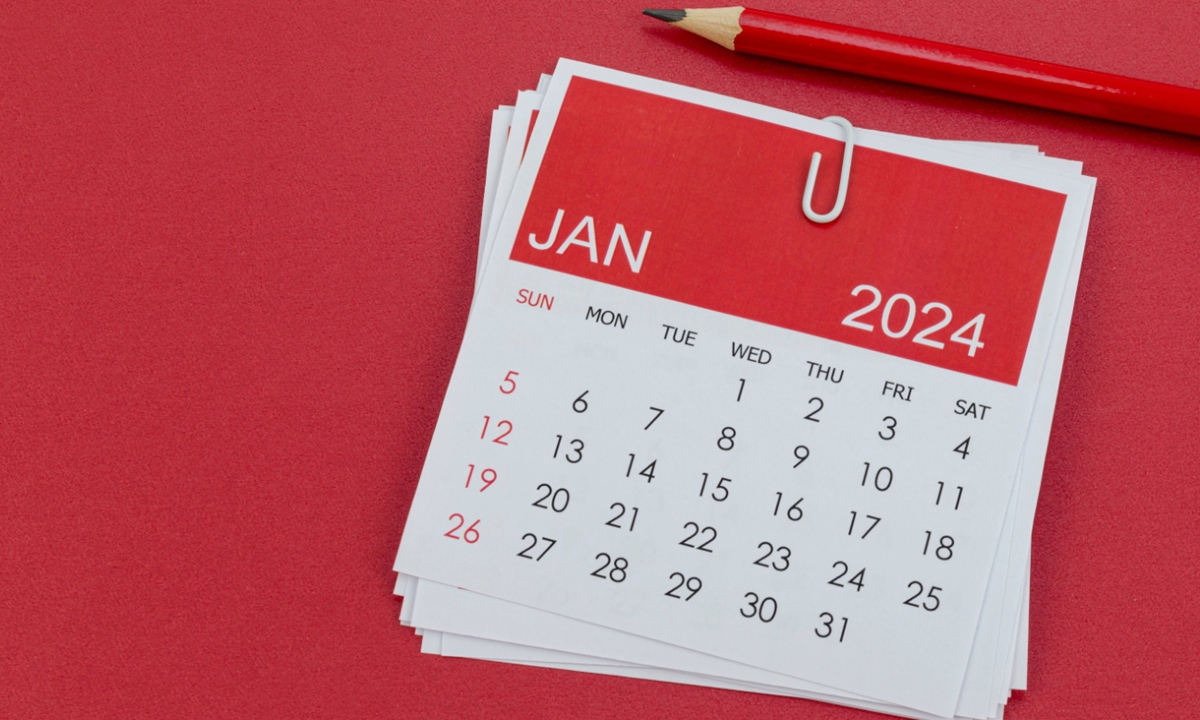
Photo: VCG
Calendars from the year 1996 have recently gained immense popularity as the dates for the year correspond to 2024, sparking attention and leading to high resale prices on secondhand online platforms.
The sudden surge in sales came after some netizens online noticed that both 2024 and 1996 are leap years that both began on a Monday.
In other words, "you can use a 1996 vintage calendar to spend your 2024," a seller on China's secondhand sale platform Xianyu told the Global Times.
China Central Television on Sunday reported that the search volume for 1996 calendars has increased 600 percent compared to last week, setting a new high in the platform's history.
On Xianyu, many 1996 calendars can be seen being sold at high prices, with many sellers using slogans such as "Let's celebrate the new year with an old calendar."
On Xianyu, the Global Times found that the prices of vintage Chinese-style hand torn calendars for 1996 could reach thousands of yuan each.
The most expensive ones have even soared to 30-50 yuan ($4-7) per page, just one day, leading to an entire calendar's going for a stunning nearly 20,000 yuan.
According to a staff member with another popular Chinese secondhand sales platform, the trade volume of 1996 calendars has been on the rise since the beginning of 2024, reaching its peak on January 9, with over 400 people simultaneously searching for the keyword "1996 calendar."
However, business insiders are also reminding buyers to be cautious about these calendars' value as collectibles, as the occurrence of identical leap year calendars is not that uncommon and happens every 28 years.
Fang Xiao, chief editor of a Chinese collectibles magazine, said that the buyers should be careful when considering their value. "Some of those old calendars hold some collectible value, but currently, most of the prices of 1996 calendars are too high from their normal prices. As some people are buying them out of curiosity, there might also be some young people overestimating their collectible value as certain sellers are selling them as a gimmick."
However, "certain old calendars are indeed collectibles," Beijing-based 30-year veteran collector Li Xiang told the Global Times on Monday. "Some of them can have significant collectible value when they are in good condition, have meaningful themes and also special content that reflects a change in society," Li said.
It's not just calendars, recent months have seen surging interest in vintage items, reflecting a trend of nostalgia among Chinese consumers, especially younger ones.
Take "nostalgia snacks" as an example. A report published by China's online retailer JD.com in 2023 said that throughout 2022 the sales of snacks whose selling point involve keywords such as "nostalgia" and "childhood" increased over 70 percent compared to 2021.
In November 2023, a 1990s Chinese mechanical watch brand, GUI-HUA (lit Osmanthus), suddenly went viral after an influencer published a purchasing video on social media. Its low price and high quality made it a good bargain and soon long lines of customers were forming in front of the brand's shop in Nanning, Southwest China's Guangxi Province.
According to a report from the Xinhua News Agency, buyers of the trending "Osmanthus" watches were mainly young people in their 20s, and some were even willing to queue for seven to eight hours to acquire a retro mechanical watch.




